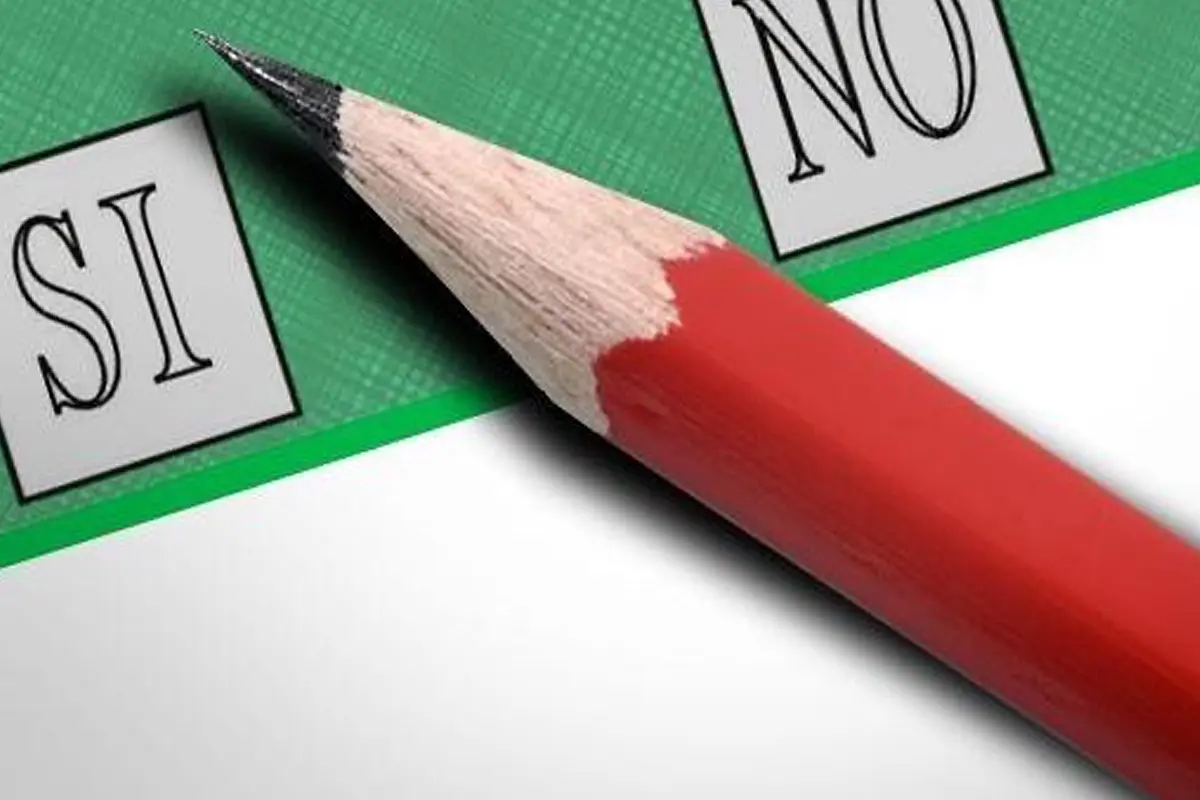
di James L. Newell
The morning after the European Parliament elections of 8 and 9 June, Italy was a country more clearly divided between left and right than it had been until that point. Among the governing parties there was a slight concentration of support on Georgia Meloni’s party, which took 28.8% of the vote (Table 1), representing an increase of almost 3% on its performance at the general election of 2022, and gifting Fratelli d’Italia (Brothers of Italy, FdI) a slight increase (from 59.3% to 60.4%) in its weight within the right-wing coalition. Among the parties of opposition there was a similar concentration of support on the largest party, with the Partito Democratico (Democratic Party, PD) taking 24.1%, so improving on its vote share at the 2022 election by nearly 5% and increasing its weight among the so-called ‘campo largo’ (‘broad field’) forces[1] from 50.2% to 58.4%. A further indication of the sharper left-right division among Italian voters was the fact that centrist formations (those led by Matteo Renzi and Carlo Calenda) and formations of ambiguous ideological placement (those led by Giuseppe Conte and Emma Bonino) all lost support.
Table 1 European Parliament elections 2024: results in Italy
| List | Parliamentary group | Votes (no.) | Votes (%) |
| Fratelli d’Italia | European Conservatives and Reformists | 6,722,382 | 28.8 |
| Partito Democratico | Progressive Alliance of Socialists and Democrats | 5,632,522 | 24.1 |
| Movimento Cinque Stelle | 2,332,160 | 10.0 | |
| Forza Italia-Noi moderati | European People’s Party | 2,242,318 | 9.6 |
| Lega | Identity and Democracy | 2,098,765 | 9.0 |
| Alleanza Verdi e Sinistra Italiana | 1,582,107 | 6.8 | |
| Stati Uniti d’Europa | 881,162 | 3.8 | |
| Azione | 783,225 | 3.3 | |
| Pace Terra Dignità | 516,412 | 2.2 | |
| Others | 577,568 | 2.4 | |
| Total | 23,368,621 | 100.0 |
Source: la Repubblica, https://elezioni.repubblica.it/2024/europee/8-giugno/italia/
Note: 63,660 sections counted of 63,905, results as at 16:23, 10 June 2024
Politicians on both the left and right, therefore, had reasons for celebration. On the right, all three of the governing parties could claim victories of sorts. Besides FdI, the lists fielded by Forza Italia (FI) and ‘Noi Moderati’ (literally, ‘We moderates’) took 9.6%, thus coming in ahead of the third party, the Lega (League). This confirmed that the party founded by Silvio Berlusconi could still put on a creditable performance despite the passing of its charismatic leader who, while alive, had constantly resisted attempts to institutionalise what had been conceived as a party designed purely to further his own political career. The League, with 9.0%, actually performed a fraction better than it had done in 2022, when it had taken 8.8% — which suggested that the authority of its leader, Matteo Salvini – whose position had seemed as though it might be threatened in the event of a significant eclipse by FI – was reasonably safe for the time being at least. On the left, Elly Schlein’s leadership of the PD was reinforced by her party’s result, while the 6.8% taken by Alleanza Verdi-Sinistra Italiana (Green Party-Italian Left Alliance, AVS) meant that it cleared the 4% exclusion threshold comfortably and almost doubled its 3.6% share at the 2022 elections.
Against the background of an overall shift to the right in the distribution of seats in the European Parliament and a surge in far-right support in some countries (notably France, Germany and Austria) arguably, the real victors of the contest in Italy were those on the left. Given the decline in turnout (at 49.7%, down from 54.5% in 2019 and from 63.9% at the 2022 general election), in absolute terms, all three of the governing parties attracted fewer votes than they had done at the general election despite remaining buoyant in terms of percentage vote shares. On the left, on the other hand, the reverse was the case. Besides taking increased vote shares, both the PD and the AVS also did better in absolute terms, the former taking around a quarter of a million more votes than it had done in 2022, the latter over half a million more.
The explanation for this good showing would have to await the results of post-election analyses based on survey data. However, it was not unreasonable to suggest that it had to do, at least in part, with the left’s success in mobilising its supporters in a context in which the 2024 European Parliament elections had come to be understood by left-wing sympathisers in Italy as a crucial test for it. Votes, after all, would have been cast in awareness of the massive defeat parties opposed to Meloni had suffered in 2022; of Meloni’s continued buoyance; of the significance of the contest for the security of Elly Schlein’s position as PD general secretary. She, after all, was a leader with roots on the radical left who had come by her position in 2023 against the wishes of a majority of PD members who had preferred Emilia-Romagna regional president, Stefano Bonaccini. At least some part of AVS’ success, journalists suggested in the elections’ immediate aftermath, had to do with its decision to field a candidate with an unusually high profile: Ilaria Salis, the elementary school teacher and left-wing activist who had been arrested in Viktor Orbán’s Hungary on charges of having assaulted three far-right activists in February 2023. In the months prior to the European elections her case had provoked a certain degree of public outrage – both for the conditions in which she had been held in prison (images of her being led into court chained and in shackles had been especially potent) and for the draconian sentence (up to 16 years imprisonment) she risked being subjected to.
It seemed reasonable, therefore, to expect in the coming months somewhat more incisive opposition to the Meloni government in Parliament. This in turn held out the prospect of reinforcing opposition to the Prime Minister’s flagship constitutional proposal, involving direct election of the Prime Minister; seen by many as a plebiscitarian reform corrosive of principles of pluralism and of checks and balances in the Italian political system, and likely to be subject to a confirmatory referendum sometime in the months ahead. In terms of the stability of the governing coalition, the election outcome pointed in the direction of little real change at least in the immediate term.
At the European level, though support for the right and the far right had risen, it was apparent that mainstream and democratic forces still had a clear majority – to which the Italian result had contributed. On the one hand, Meloni’s much improved performance as compared with 2019 (when her party had taken just 6.4%), served to swell the ranks of the European Conservatives and Reformists. On the other hand, this had to be set against the losses for the League (down from the 34.3% it had won in 2019) and the limits this placed on the growth of the far right ‘Identity and Democracy’ group. With AVS gaining seats in the Parliament alongside those for the PD, progressives could take some comfort from an election result that was gloomy for them at the level of Europe as a whole, though one with few real surprises given what the polls had for months been predicting. If the rise in support for far-right and anti-democratic parties had to be interpreted as an expression of insecurity and popular resentments, then the question was how successful progressive and democratic forces in the new European Parliament would be in devising the responses needed to address the discontents and so prevent their majority from eroding still further.
[1] That is, the PD; the Movimento Cinque Stelle (Five-star Movement, M5s) led by Giuseppe Conte; Carlo Calenda’s, Azione; Matteo Renzi’s Italia Viva (IV); Emma Bonino’s Più Europa. At the 2024 European Parliament elections IV and Più Europa came together to field a joint list, ‘Stati Uniti d’Europa’ (‘United States of Europe’), together with four other minor formations: the Radicali Italiani (Italian Radicals), the Partito Socialista Italiano (Italian Socialist Party), the Liberali Democratici Europei (European Liberal Democrats) and ‘L’Italia c’è’ (literally, ‘Italy is There’).



